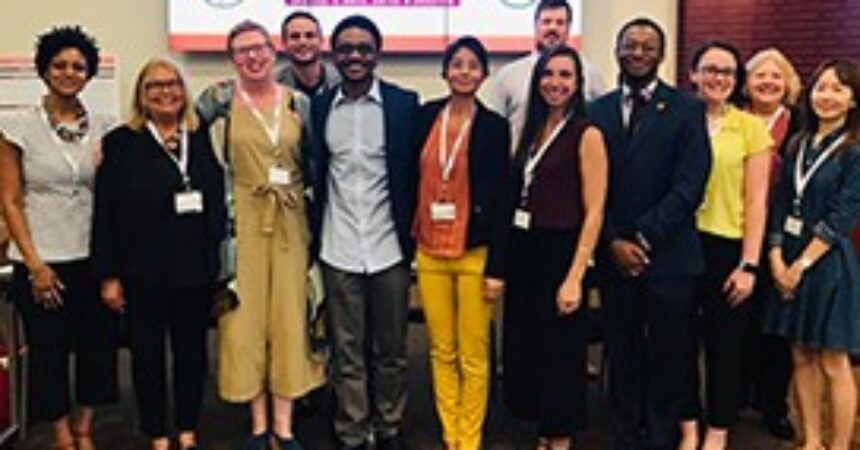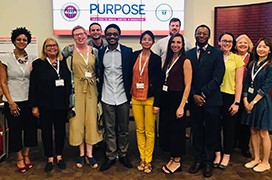
Grant will help recruit, retain research fellow from underrepresented populations

Photo submitted
Special to the Outlook
Florida A&M University researchers, in partnership with their Florida State University counterparts, received a $1.5 million federal grant renewal to support the recruitment and academic success of research fellows from underrepresented populations.
With these new funds, the Partners United for Research Pathways Oriented to Social Justice in Education (PURPOSE) training program, offered between FAMU and FSU, will continue for five more years.
This award, funded through the Institution of Education Sciences’ (IES) National Center for Education Research (NCER), is part of NCER’s Pathways to the Education Sciences Research Training program. The program was established by IES in 2015 to develop a pipeline of talented education researchers who bring fresh ideas, approaches and perspectives to addressing the issues and challenges faced by the nation’s diverse students and schools.
On the grant renewal, FAMU professors Peggy Auman, Ph.D., associate professor in the College of Education, and Novell E. Tani, Ph.D., assistant professor of psychology in the College of Social Sciences, Arts and Humanities, serve as co-principal investigators. They partner alongside FSU College of Education professors, Jeannine Turner, Ph.D., the principal investigator, Alysia Roehrig, Ph.D., and Tamara Bertrand Jones, Ph.D.
“While many students strive to engage in meaningful research, students may opt-out of research opportunities due to fiscal constraints. Many students work various outside jobs; this deprives them of the time, energy, or a desire to participate in much-needed scholastic and research development experiences,” Tani said. “PURPOSE has provided a venue where students from various backgrounds may receive professional, research, and service development under the direction of a diverse group of scholars and mentors.”
The paid research-training fellowship gives scholars the freedom to engage in research and service-leadership activities, Tani added.
“It haas been my absolute pleasure to observe the past scholars graduate and move forward in their educational and professional careers, and I know that the next five years will allow for more scholars from underrepresented groups to have access and opportunity to continue the great work of the PURPOSE initiative,” he continued.
PURPOSE provides undergraduate juniors, seniors, and beginning master’s students from education-related fields of study with financial support during a year-long research training and apprenticeship program. The fellowship helps to prepare fellows for doctoral-level research. On average, the grant offers 12-15 year-long fellowships. Applications for the next wave of PURPOSE fellows are due in September or October of the upcoming academic year.
Thus far, the researchers have successfully trained over 50 emerging scholars from FAMU, FSU, and Tallahassee Community College. Many of these scholars have gone on to engage in transformative action-based educational research, work in civic service, and/or transitioned into related doctoral programs.
Social justice issues within educational contexts are the essential research focal points of PURPOSE. As part of the year-long training program, fellows will train as education researchers, conduct research with faculty mentors at FAMU Developmental Research School’s “Freedom School,” funded by the Children’s Defense Fund.
“PURPOSE represents a partnership between two Florida universities that serve diverse student populations,” Roehrig said. “It is our hope that PURPOSE will inspire many students from FAMU and FSU who may not have thought of pursuing a doctorate in education as relevant or attainable. By inspiring these students, we hope to make education research more powerful, provide more mentors to inspire the next generation of scholars, and demonstrate that academia is a place for those from underrepresented groups.”
Faculty participating in PURPOSE represent multiple academic disciplines and research expertise that are aligned with the goals of the Pathways Training Program.
“It seemed like a natural fit for us to work together,” Roehrig said. “As a team, we have expertise in research training, service learning, mentorship, program evaluation, and assessment — all the elements to ensure PURPOSE will help its participants learn how to make a difference in education through research.”
To learn more about PURPOSE, visit https://purposetraining.org







